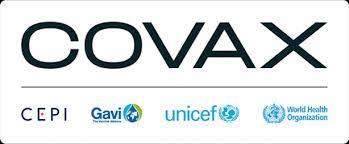February 5, 2018
Seema Verma
Administrator,
The Centers for Medicare and Medicaid Services
7500 Security Boulevard
Baltimore, MD 21244
RE: Arizona (AHCCCS) 1115 Waiver Application
Dear Administrator Verma:
I write on behalf of the Arizona Public Health Association (AzPHA) – one of Arizona’s oldest and largest membership organizations dedicated to improving the health of Arizona citizens and communities. An affiliate of the American Public Health Association, our members include health care professionals, state and county health employees, health educators, community advocates, doctors, nurses and students.
The Arizona Health Care Cost Containment System (AHCCCS) has requested permission through an 1115 Waiver Application to implement changes to its 1115 demonstration in response to its state legislation, (Senate Bill 1092). Through their amendment, AHCCCS requests to implement employment and community engagement requirements as a condition of Medicaid eligibility and bi-annual verification of compliance with employment and community engagement requirements as well as other changes in family income or other eligibility factors. They have also asked for the authority to limit lifetime coverage for “able-bodied adults” to five years unless an individual is considered exempt by the state.
Section 1115 of the Social Security Act gives the Secretary of Health and Human Services authority to approve experimental, pilot, or demonstration projects that are found by the Secretary to be likely to assist in promoting the objectives of the Medicaid program. The purpose of these demonstrations, which give states additional flexibility to design and improve their programs, is to demonstrate and evaluate state-specific policy approaches to better serving Medicaid populations.
A core tenant of these waivers is to conduct a robust evaluation of demonstration projects to properly gauge their effectiveness. We urge the Centers for Medicare and Medicaid Services to stay true to this commitment and withhold approval of the waiver.
until after AHCCCS submits an evaluation design that will satisfactorily measure the effectiveness of this waiver application in meeting the health and wellness needs of our nation’s vulnerable and low-income individuals and families.
Because a comprehensive evaluation plan has not been submitted with this waiver application, it is unclear how the Administration will evaluate the plan’s effectiveness and meet the intent of the 1115 waiver requirements.
For example, the application provides no insight into how AHCCCS will evaluate program impact on health outcomes and track and report on the number of individuals whose eligibility is discontinued due to failure to demonstrate compliance with the Waiver’s work/job training requirements.
It is unclear whether AHCCCS will track and report on the number of individuals who seek and obtain exemptions from the work requirement and how population impacts will be disaggregated by sociodemographic characteristics including age, sex, race, ethnicity and geography. The application does not discuss whether they will use external metrics such as hospital uncompensated care reports to provide early indicators of any potential provider impacts on changes in coverage that may result from the waiver.
AHCCCS identifies basic proposed evaluation methods such as the rate of employment, job seeking, education and employment support and development activities for able-bodied adults and state that they will track and report on the average household income. However, their discussion does not constitute an evaluation plan. CMS guidance states that evaluations must assess program impact on health outcomes – a topic which is not addressed in the AHCCCS Waiver application.
We are aware the Secretary of Health and Human Services and the CMS Administrator are receptive to the kind of waiver request that AHCCCS is requesting, and that Section 1115 demonstrations are generally approved for an initial five-year period and can be extended for up to an additional three to five years, depending on the populations served.
However, because of the large and challenging system changes that will be required by AHCCCS and members under this request, we strongly urge CMS to withhold any approval until the Administration submits a credible and robust evaluation strategy and plan.
We also urge CMS to limit any approval to 3 years, pending the results of an objective evaluation of the impact that these changes will have on vulnerable and low-income individuals and families.
Additionally, we urge CMS to ask AHCCCS for a complete and evidence-based rationale for how a 5- year limit on lifetime benefits could possibly further the mission of meeting the health and wellness needs of our nation’s vulnerable and low-income individuals and families. Many chronic medical conditions such as diabetes and asthma require continual chronic disease management. Without connection to care these conditions become more challenging and more expensive. With a 5-year limit on benefits, former members will be disconnected from care, resulting in poor outcomes and increased compensated and uncompensated care.
Additionally, there are many unknowns about how the Administration will implement the 5-year limit. For example, how will the Administration keep track of exempt member months over time and how will they be able to apply and allocate those months toward the 5-year limitation? What mechanisms will be used to allow members to supply the needed data, and how will the communication loop be implemented and maintained.
Sincerely,
Will Humble, MPH
Executive Director,
Arizona Public Health Association


